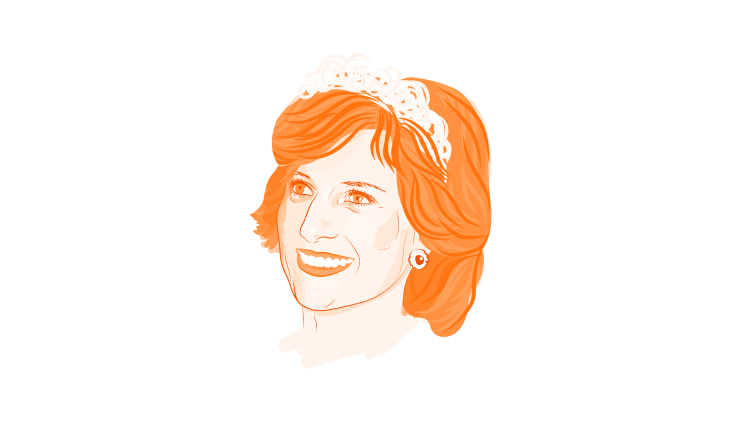If you die without a will, then your estate — the collection of everything that you owned — will be declared intestate. The court will determine who gets what, which can take months or even years of probate. There is no guarantee that the people closest to you while you were alive will be the beneficiaries of your estate. And because there is no will, your family could tear itself apart in probate court as they fight for their share of the estate.
That was the fate of these five celebrities who died without a will, which led to inevitable legal battles and infighting among their family members and heirs. These famous individuals undoubtedly owned a bit more wealth than the average person, which makes an estate plan all the more necessary. But it all starts with writing a last will and testament — advice that everyone should heed to protect their loved ones in the future.
Prince
Died: April 21, 2016, at age 57, in Chanhassen, Minnesota
Estate value: Between $100 million and $300 million

Prince was hugely popular while he was alive, but after he passed suddenly in 2016, even more fans came out of the woodwork. Numerous cousins and a few supposed wives made a claim to the artist’s vast estate, which consisted of intellectual property rights, unreleased music, fine art, memorabilia, eight vehicles, 67 gold bars, and more. The judge called Prince’s estate “personal and corporate mayhem.”
Dying without a will means the court must appoint someone called an administrator to handle the affairs — make an inventory, pay taxes, and finally distribute everything. Prince’s potential heirs accused the temporary corporate administrator of stealing money from the estate, but they disagreed on who should take over the executor duties instead.
After two years of legal wrangling, Prince’s sister and his five half-siblings were named the rightful heirs by the Minnesota probate court. However, as of March of this year, Prince’s siblings were still fighting for their share of the estate.
➞ The executor performs an integral role maintaining your assets and distributing your belongings after you die. You can appoint one in your will to make things easy — you’ll need one even if you’re not nearly as wealthy as Prince.
Steve McNair
Died: July 4, 2009, at age 36, in Nashville, Tennessee
Estate value: $19.6 million

The NFL star who played with the Tennessee Titans and Baltimore Ravens was tragically killed by his mistress. With no valid will at the time of death, his belongings and assets were distributed among his wife, Mechelle McNair, and his four children, two of whom were from a previous marriage.
Without a will, probating the quarterback’s estate proved especially troublesome. McNair had purchased a home for his mother, Lucille, on 45 acres in Mississippi, although the title was in his name. After he died, a probate court named Mechelle the personal representative of the estate, and she was entitled to ask McNair’s mother to pay rent on the home. Unable to pay, Lucille was forced to vacate the house.
According to Tennessee probate laws, the surviving spouse would receive one-third of the estate while the children receive the rest. But the world will never know if that’s what McNair wanted — maybe he had specific ideas about who would inherit his restaurant or his farming business.
Planning for blended families can be tricky, but a trust can help even more complex situations. A QTIP trust specifically would have allowed McNair to give more instructions as to how his assets should be distributed while also providing for his wife.
➞ If you’re creating an estate plan for your blended family, you might consider a QTIP trust, a family trust, or a trust fund.
Howard Hughes
Died: April 5, 1976, at age 70, in Houston, Texas
Estate value: Over $2 billion

You would think that one of the richest men in the world would have prepared better for the future, but this eccentric aviation magnate/film producer did not leave behind even a simple will. It’s possible that Hughes simply didn’t see the need, as he had no family or direct descendants to pass his empire to — all the more reason he should have had a plan.
The majority of Hughes’ assets went to the Howard Hughes Medical Institute, but dozens of distant relatives he barely knew also received a payout, something that the finicky and reclusive mogul probably didn’t want.
The Hughes estate also paid over $169 million in taxes, something that could have been avoided with some planning.
➞ Very wealthy estates may be responsible for paying estate taxes. To minimize taxes, you can open an irrevocable trust.
In an additional wrinkle to the Hughes estate’s legal battles, the Church of Jesus Christ of Latter-Day Saints received a will purportedly written by Hughes that gave the bulk of his estate to charity and other people in Hughes’ orbit. But Hughes was not Mormon and was not on good terms with some of the supposed beneficiaries in the will. One beneficiary in particular stood out: Melvin Dummar, who owned a gas station in Utah, and apparently stood to inherit $156 million from the Hughes estate despite having no credible connection to the late captain of industry. The so-called “Mormon will” was eventually determined to be a forgery.
Before the estate of Howard Hughes was declared intestate, over 40 handwritten wills were submitted to the court and rejected.
Aretha Franklin
Died: August 16, 2018, at age 76, in Detroit, Michigan
Estate value: $17 million

Nearly a year after the Queen of Soul passed away, three handwritten wills were discovered in her home (one was even wedged between the sofa cushions). The penmanship is messy, at times even illegible, and one of the documents contains cross outs and margin notes, which may detract from its validity.
On the other hand, Franklin was explicit in detailing her intentions that each document was in fact a will, and even signed and dated them — fulfilling some requirements under which a handwritten will, called a holographic will, would be recognized in the state of Michigan. One of the wills was even notarized, which may lend credence to its validity.
The legal validity of the three documents hasn’t been determined yet. (Hearings begin in September, which gives you some insight into how slow probate can be.) But the court’s decision could change the course of fate for Franklin’s four sons, who stand to inherit. If no will is determined to be valid, they should receive equal shares of the estate, according to Michigan’s intestate succession law. But the most recent version of her “will” leaves out her oldest son Clarence, who has special needs. Franklin only asks that his brothers take care of him. The singer’s lawyer who handled her entertainment deals often advised her to open a trust, and it sounds like a special needs trust in particular could have been of great help now.
➞ Handwritten wills, called holographic wills, are valid in some states but they have to be constructed according to certain rules. Learn more about holographic wills.
Amy Winehouse
Died: July 23, 2011, at age 27, in London, England
Estate value: £2.94 million (about $4.66 million USD in 2011)

Another musical artist gone too soon. The Grammy winning singer-songwriter died of accidental alcohol poisoning and had no will at the time of death. Her parents eventually received her estate and established the Amy Winehouse Foundation to help young artists struggling with substance abuse.
Winehouse's estate was probated and settled in the U.K., where she died, and according to British law, her ex-husband was not entitled to anything. Nevertheless, eight years after Winehouse died, her ex-husband tried to make a claim against the estate for $1.4 million. In the U.S. someone must typically make a claim against an estate within just a few years after probate begins — barring fraud, eight years is almost certainly too long.
➞ You can actually make charitable donations while you’re alive and receive tax benefits, while simultaneously providing for your beneficiaries with a charitable trust.
Another interesting celebrity estate
Princess Diana
Died: August 31,1997, at age 36, in Paris, France
Estate value: £21 million (about $31.5 million USD in 1997)

Lady Di actually did write a valid will before she died. Her estate went through a relatively uncomplicated probate process, naming her mother, Frances Shand Kydd, and her private secretary, Patrick Jephson, as executors and trustees.
But Diana’s estate was interesting for two reasons. She wrote a codicil to her will that replaced Jephson with her sister Lady Sarah McCorquodale.
However, her estate shows how even with a will, things can get complicated. Diana also wrote a letter of wishes, an informal document in which she asked that one-fourth of her estate be split equally among her 17 godchildren. This would have left each of them with an inheritance of roughly £160,000. However, the instructions were ignored since the letter lacked the proper language required by British law to make her wishes binding. Her godchildren ultimately received one of her personal belongings, or what some have called a “tacky memento.”
➞ You can write an informal letter of intent, or letter of instruction, as it’s known in the U.S. but it should not (and cannot) replace a formal will.


